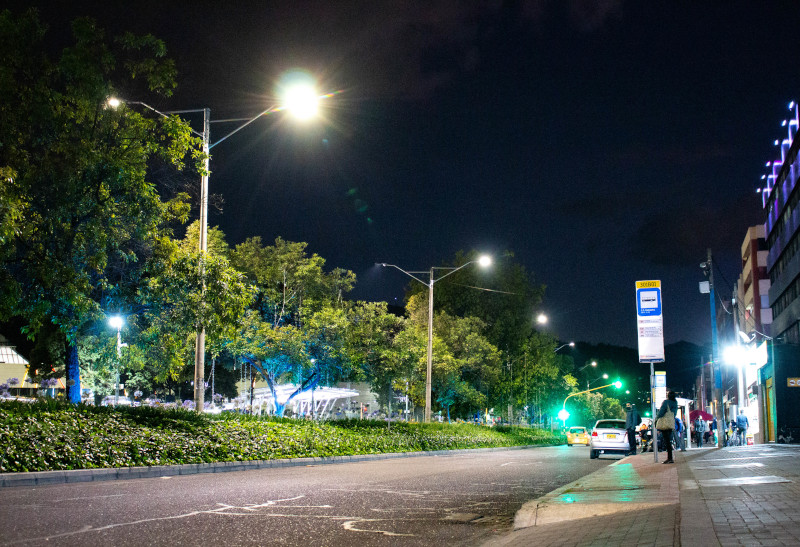Smart lighting for Bogotá: urgent / Multimedia Editor's Analysis

Our capital is at a crucial moment in its vision for the future: with the expiration of the agreement between Enel and the Special Administrative Unit of Public Services (UAESP), an ideal and unique time has begun for the much-needed discussion of what type of public lighting a city like Bogotá requires.
The Mayor's Office, within the framework of its Bogotá Digital Capital program, and with the work of the District High Council of ICT and the ETB, proposes to the District Council to analyze the option of moving towards a smart lighting infrastructure, which not only enables the transition from an analog and obsolete system to one based on LED technology (there are more than 140,000 old and polluting luminaires that need to be replaced), but also builds a large IoT (Internet of Things) network that includes 50,000 high-definition digital cameras for video surveillance (going from one to five per thousand inhabitants), as well as environmental and traffic control sensors, aimed at improving monitoring and decision-making based on real-time digital live data.
A smart lighting network would not only modernize the efficiency of the city's lighting, but would also bring significant savings and additional benefits that would impact the well-being, safety, and quality of life of millions of people throughout the city.

Street lighting. Photo: Bogotá City Hall
Energy consumption across Bogotá would initially be reduced by 25 percent thanks to an intelligent system that regulates, turns on, off, or intensifies lighting based on schedules, traffic, and urban density, with 30 percent lower maintenance costs and a 40 percent improvement in technical response and solutions.
The reduction in crime, thanks to the ability to increase surveillance cameras by 500 percent, is estimated at 26 percent for Bogotá.
Sensors for the environment, humidity, pollution, noise, traffic, mobility density, etc., would allow for the consolidation of a large smart city dashboard to unify what the Mobility, Environment, and Security ministries currently do separately, with the respective savings in resources and the gains in unified smart data to more efficiently manage the city as a whole.
Clearly, this celebration must be paid for. And that's where the outstanding bill for public lighting service must be addressed. Bogotá, with its 8 million inhabitants, is the only capital city in the country without this tax, which has limited the ability to invest in the modernization of this critical infrastructure.
It will be a complex debate. Introducing a new tax on citizens and businesses will require a significant political and civic effort by the Council, which must carefully analyze the impact on the quality of life of its constituents—of all of us, who deserve a smart digital network for lighting, security, mobility, and the environment like the world's major capitals. We deserve it. We need it.
eltiempo





